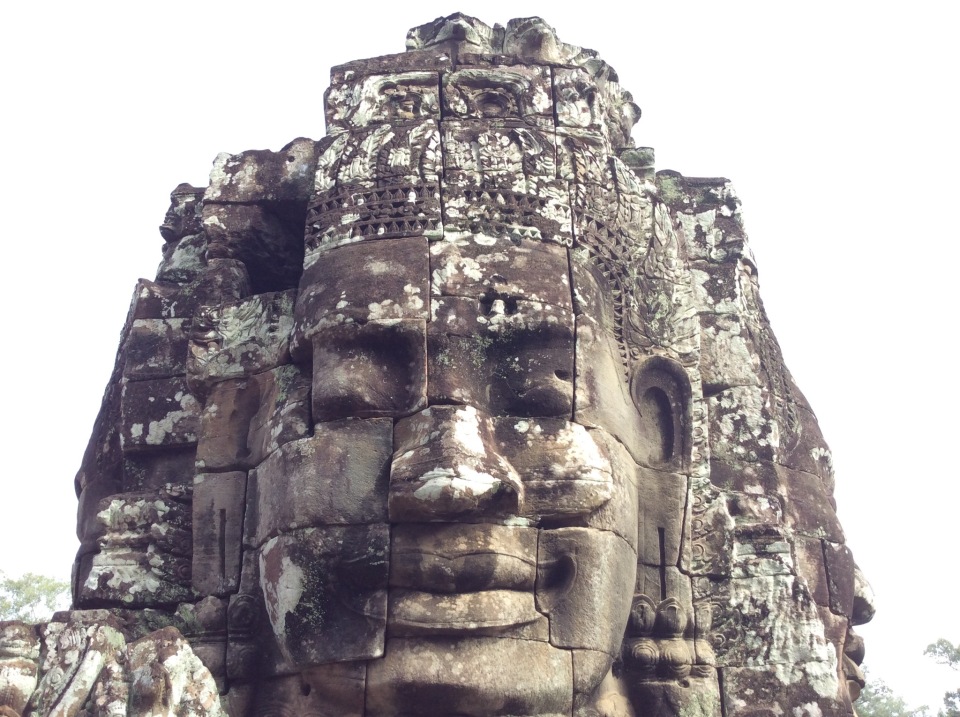Designated a UNESCO World Heritage Site in 1992, the temples of Angkor are scattered over four hundred square kilometres, although the most famous are clustered close to Siem Reap. Each is as diverse as the Kings who built them and they have their own distinct appeal but still seem to be part of everyday life.
The visual impact of Angkor Wat is awesome and is the centrepiece of any visit here.
The majority face east to catch the rays of the rising sun, symbolising life but Angkor Wat (below) faces west, the direction of the setting sun and death.

The giant stone faces of Bayon (below) have become one of the most recognisable images of Khmer art and architecture. The Bayon temple consists of thirty seven towers with their massive faces of Lokesvara (more than two hundred in all).

Within the temples are small Buddha shrines where if you give a contribution it will ensure that you have good karma in the next life.

Siem Reap was a honeypot of surprises; great hotels, markets and restaurants. It even had a King’s Road and a Pub Street! It had the best infrastructure that I have seen in Cambodia so far.

